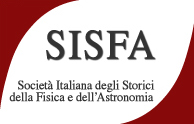Speaker
Description
Stanley Deser's multifaceted contributions to quantum gravity are here analyzed, starting from his contribution to the famous 1957 Chapel Hill conference on “The Role of Gravitation in Physics”. The main idea of his talk, as also summarized in Peter G. Bergmann's introduction, was the possibility offered by the development of quantum gravity to provide a way of imposing a cut-off to ultraviolet divergences in quantum field theory, and thus to make a contribution to the theory of elementary particles. Deser’s subsequent stay at Harvard, as Julian Schwinger's assistant, was crucial in that it led to the first seeds of the celebrated ADM (Arnowitt-Deser-Misner) formulation of general relativity, brought to completion in 1962-63. The influential role of this work in unveiling the canonical structure of general relativity and in triggering the development of the canonical approach to quantum gravity is here fully elucidated. Deser’s contributions to the formulation of general relativity as a quantum field theory and to the covariant approach to quantum gravity are considered as well, with particular emphasis on his use of the first order formalism, which also led to an alternative route to Supergravity.

